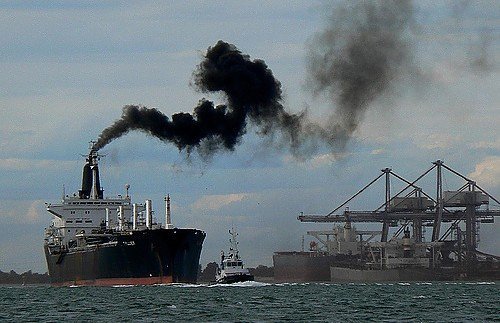Emissions from shipping more hazardous than expected, research finds

Researchers from Lund University in Sweden have found that emissions from shipping are more of a health-hazard than previously thought.
A team of researchers studied the flow of air from measuring stations in southern Sweden and in the Finnish archipelago over the Baltic Sea to another station on the coast of Lithuania.
Almost half of the airborne hazardous nanoparticles measured by researchers were emitted from vessels, while the rest was found to have originated from cars, plus biomass combustion, industries and natural particles from the sea.
“This is the first time an attempt has been made to estimate the proportion of nanoparticles stemming from sea traffic. The different types of nanoparticles have previously not been distinguished, but this new method makes it possible,” said Adam Kristensson, researcher in aerosol technology at the Lund University Faculty of Engineering in Sweden.
“Previously, we thought that land-based pollution from northern European countries and emissions of natural particles from the surface of the sea accounted for a much larger proportion,” he continued.
Tiny nanoparticles are hazardous to health because they can penetrate deeper into the lungs than larger particles, and can lead to cardiovascular and pulmonary diseases. The particles are able to travel long distances before they are inhaled or washed away by the rain. Soot particles are considered the most hazardous.
Particles from vessel traffic in the North Sea and the Baltic Sea are expected to contribute to 10,000 premature deaths every year, but Kristensson stressed that this estimate is very uncertain and would benefit from further analysis of air in coastal areas.
“It is especially important to continue to set stricter caps on nitrogen oxides and sulphate content from ship fuel,” Kristensson said.
He welcomed the IMO’s new limits on the sulphur content of marine fuel in the Baltic and northern Europe emissions control area (ECA), but said more research would be required to quantify the regulation’s effects on air quality and particle levels.
